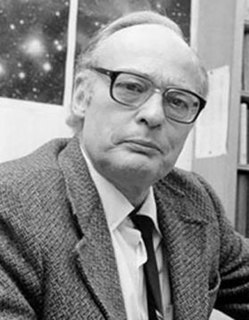A Quote by Lucretius
All nature, then, as self-sustained, consists
Of twain of things: of bodies and of void
In which they're set, and where they're moved around.
Related Quotes
Nothing which consists of corporeal matter is absolutely light, but that is comparatively lighter which is rarer, either by its own nature, or by accidental heat. And it is not to be thought that light bodies are escaping to the surface of the universe while they are carried upwards, or that they are not attracted by the earth. They are attracted, but in a less degree, and so are driven outwards by the heavy bodies; which being done, they stop, and are kept by the earth in their own place.
Are not gross bodies and light convertible into one another; and may not bodies receive much of their activity from the particles of light which enter into their composition? The changing of bodies into light, and light into bodies, is very conformable to the course of Nature, which seems delighted with transmutations.
He’d moved toward me again. His hands released mine and moved to my waist, and I noticed I wasn’t the only one breathing heavily. He pulled me to him, bringing our bodies together. The world was all heat and electricity, thick with tension that was only one spark away from exploding around us. I was balancing on another precipice, which wasn’t easy to do in heels. I wrapped my arms around his neck, and this time I was the one who drew him closer.
The Void is not being, but not being cannot be, ergo the Void cannot be. The reasoning was sound, because it denied the Void while granting that it could be conceived. In fact, we can quite easily conceive things that do not exist. Can a chimera, buzzing in the Void, devour second intentions? No, because chimeras do not exist, in the Void no buzzing can be heard, and intentions are mental things - an intended pear does not nourish us. And yet I can think of a chimera even if it is chimerical, namely, if it is not. And the same with the Void.
If you look at the ox-herding pictures - specifically the newer set of ten pictures rather than the older set of eight - you see that after the blank circle of the void, the cycle comes back to a river flowing by the roots of a tree (both strong symbols of nature, the life-force, the unconscious) and to the wanderer returning to the market place, which is the realm of human society and activity.
Nature has but one plan of operation, invariably the same in the smallest things as well as in the largest, and so often do we see the smallest masses selected for use in Nature, that even enormous ones are built up solely by fitting these together. Indeed, all Nature's efforts are devoted to uniting the smallest parts of our bodies in such a way that all things whatsoever, however diverse they may be, which coalesce in the structure of living things construct the parts by means of a sort of compendium.
If the essence of cynicism consists in preferring nature to art, virtue to beauty and science; in not bothering about the letter of things -- to which the Stoic strictly adheres -- but in looking up to the spirit of things; in absolute contempt of all economic values and political splendor, and in courageous defence of the rights of independent freedom; then Christianity would be nothing but universal cynicism.
Voidness is that which stands right in the middle between this and that. The void is all-inclusive, having no opposite--there is nothing which it excludes or opposes. It is living void, because all forms come out of it and whoever realizes the void is filled with life and power and the love of all beings.






































